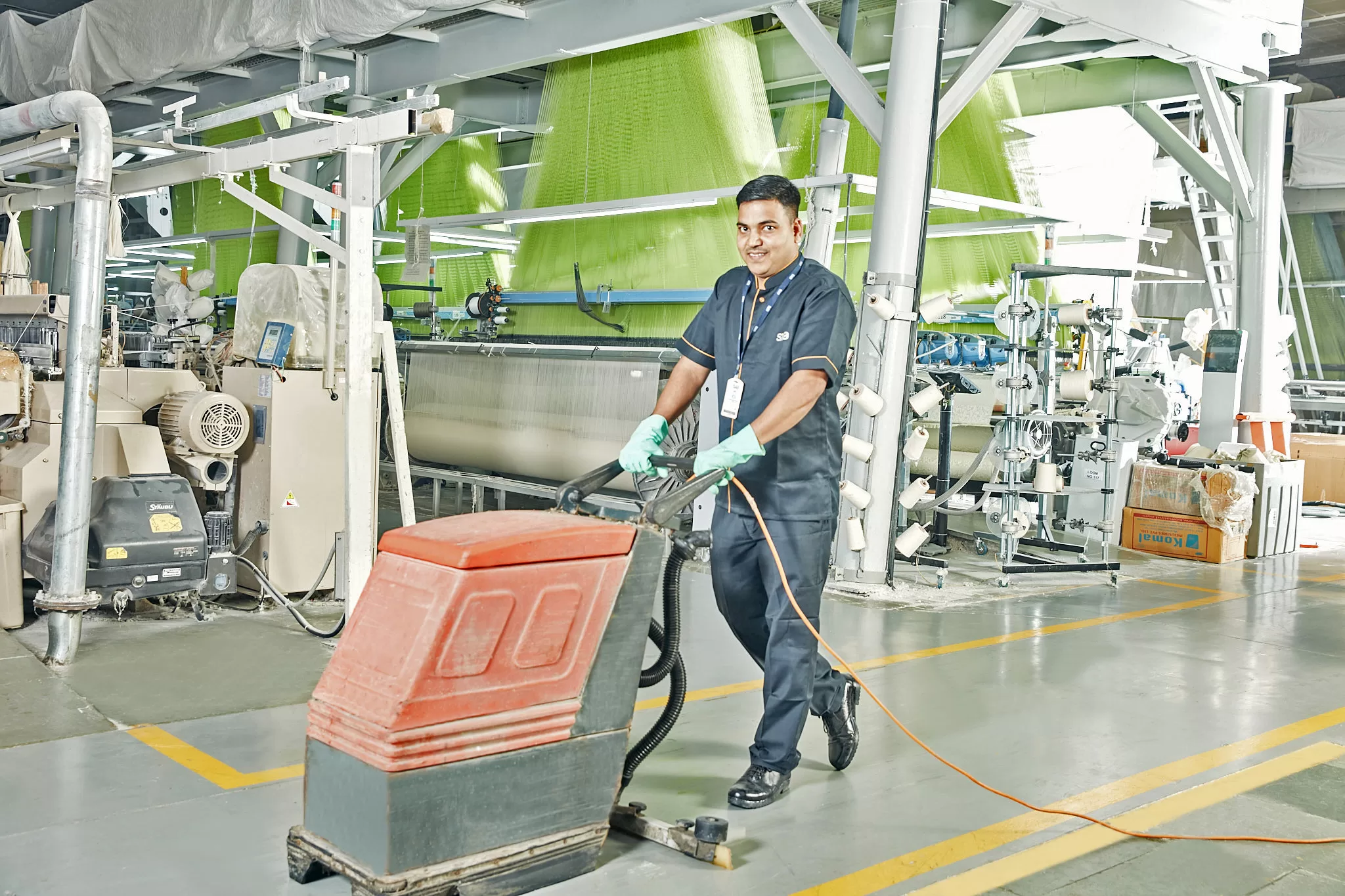What is (IFM) integrated facility management?
Integrated Facility Management (IFM) is a comprehensive way of handling all aspects of facilities management, where everything from organization-wide systems to service providers is managed centrally through an outsourced, technology-driven platform.
IFM brings about operational efficiencies, cost savings, and utilizes data effectively to meet organizational objectives. It achieves this by:
1.Streamlining Operational Processes
2.Controlling Operating Costs
3.Improving Communication & Collaboration
4.Leveraging Technology for Actionable Insights
In essence, IFM enhances organizational agility and positions businesses on a stronger strategic foundation.
What are the Four Pillars of facility management?
The four pillars of Facility Management are: people, processes, building, and technology. Understanding and managing these aspects are crucial for meeting customer and employee expectations effectively.
What are the 5 Key components of integrated facility management?
Facility Operation and Maintenance:
This component involves the day-to-day running of facilities, including tasks like HVAC maintenance, lighting repairs, and ensuring equipment operates smoothly. It aims to keep facilities functioning optimally, minimizing downtime and maximizing efficiency.
Security and Safety Management:
Here, the focus is on safeguarding the premises and its occupants. This encompasses implementing security protocols, monitoring surveillance systems, and conducting safety inspections to prevent accidents and mitigate risks.
Cleaning and Housekeeping:
This aspect is dedicated to maintaining cleanliness and hygiene standards within the facility. It involves regular cleaning of spaces, disposal of waste, and ensuring a sanitized environment conducive to health and productivity.
Landscape and Environment:
Managing the outdoor spaces and environmental factors surrounding the facility falls under this category. It includes landscaping maintenance, waste management for outdoor areas, and implementing eco-friendly practices to promote sustainability.
Technical Services
: This component covers specialized technical tasks essential for facility operations, such as electrical repairs, plumbing maintenance, and IT infrastructure management. It ensures that all technical systems within the facility function effectively to support daily operations.
What are the top 4 benefits of integrated facility management services?
Cost Efficiency:
IFM promotes cost efficiency by consolidating various facility management functions under a single management system. This consolidation eliminates redundancies, reduces overhead costs, and optimizes resource allocation, ultimately leading to significant cost savings for the organization.
Compliance and Risk Management:
With IFM, organizations can ensure compliance with regulatory standards and mitigate potential risks associated with facility operations. By centralizing management processes and implementing standardized procedures, IFM helps organizations stay updated with regulatory requirements and proactively address risks, thus safeguarding the business from legal and operational liabilities.
Sustainability and Energy Efficiency:
IFM focuses on promoting sustainability and energy efficiency within facilities. By integrating sustainable practices into facility management processes, such as implementing green technologies and optimizing resource usage, IFM helps organizations reduce their environmental footprint, lower energy consumption, and achieve sustainability goals.
Strategic Decision Making:
IFM provides organizations with valuable data and insights that enable informed, strategic decision-making. By leveraging technology and analytics, IFM generates actionable insights into facility performance, occupant behavior, and operational trends. This data-driven approach empowers organizations to make informed decisions, optimize resources, and align facility management strategies with broader business objectives.
Strategies for effectively managing and controlling facility management costs
Managing and controlling facility management costs is crucial for organizations seeking to optimize their operations and maximize financial success. By implementing effective strategies, facility managers can ensure that costs are controlled and kept within budget without compromising on quality and performance. Here are some key strategies to consider:
Conduct a comprehensive cost analysis:
Start by gaining a clear understanding of your facility’s cost structure. Analyze expenses at both the macro and micro level, identifying areas where costs can be reduced or eliminated. This analysis will provide valuable insights into where resources are being allocated and where potential savings can be achieved.
Implement maintenance best practices:
Maintenance costs can be a significant component of facility management expenses. By implementing proactive maintenance practices, such as regular inspections, preventive maintenance scheduling, and prompt repairs, facility managers can avoid costly breakdowns and extend the lifespan of equipment and facilities. This can lead to significant savings in the long run.
Invest in energy-efficient technologies:
As energy costs continue to rise, investing in energy-efficient technologies can help reduce utility expenses. Consider upgrading lighting systems to LED, installing smart thermostats, and implementing energy management systems to monitor and control energy usage. These investments can result in substantial savings over time.
Optimize space utilization:
Utilizing space efficiently can lead to substantial cost savings. Evaluate the current layout and configuration of your facility, and identify opportunities to repurpose or consolidate spaces. By optimizing the use of existing space, organizations can avoid unnecessary expenses associated with leasing or maintaining additional square footage.
Implement effective vendor management:
Facility managers often rely on external vendors for services such as cleaning, maintenance, and security. Effective vendor management includes negotiating favorable contracts, monitoring vendor performance, and regularly reviewing service levels and pricing. By actively managing vendor relationships, facility managers can ensure that costs remain competitive and services are delivered to the expected standards.
Embrace technology and automation:
Leveraging technology and automation can streamline facility management processes, reduce manual tasks, and improve operational efficiency. Consider implementing a computerized maintenance management system (CMMS) to automate work order management, track assets, and generate reports. This can help minimize labor costs and enhance productivity.
Transitioning to integrated facility management?
Transitioning to Integrated Facility Management (IFM) may seem daunting, but it’s a practical way to streamline operations. Here are four steps to ease the process:
1. Assess Current Procedures:
Understand your current facility management setup and identify areas for improvement.
2. Engage Stakeholders:
Clearly communicate the benefits of IFM to stakeholders and ensure their buy-in for the transition.
3. Set Benchmarking Objectives:
Compare IFM practices with existing methods to gauge effectiveness and cost savings.
4. Embrace Technology:
Use IFM as a platform to enhance office capabilities with IoT and software solutions.
Remember, transitioning to IFM takes time and patience. Start with small changes to minimize disruption and gradually improve processes. Focus on addressing facility management challenges and harnessing integrated data for better efficiency. Trust in IFM’s proven effectiveness and watch as operations become smoother and more efficient.
Integrated facility Management example?
For example, if you are running a manufacturer plant and a critical machinery breakdown requires urgent repairs, leading to unforeseen expenses. Without an Integrated Facility Management (IFM) system, managing such emergencies strains the budget and disrupts planned projects. Funds might need to be redirected from other essential areas, causing delays in crucial initiatives.
Moreover, hastily engaging unverified service providers could result in additional complications and costs. However, with IFM implemented, the facility gains a centralized solution to promptly address issues, effectively manage costs, and ensure reliable service providers are readily available.
This approach minimizes disruptions and maximizes operational efficiency, safeguarding the facility’s productivity and financial health.
The future of technology in integrated facility management practices
As facility managers continue to embrace technology, the future looks even more promising. Advancements in artificial intelligence (AI) and the Internet of Things (IoT) are revolutionizing the way facilities are managed. AI-powered analytics can help facility managers identify patterns and anomalies in data, enabling proactive maintenance and optimizing energy consumption.
IoT devices can provide real-time data on everything from occupancy levels to temperature and air quality, allowing facility managers to make informed decisions and improve the overall experience for occupants. Smart sensors and building automation systems can work together to optimize energy usage, reducing costs and minimizing environmental impact.
Moreover, cloud-based platforms are becoming increasingly popular for managing facility operations. These platforms allow for centralized data storage, collaboration, and remote monitoring, making it easier for facility managers to access critical information and streamline their processes.
9 Essential considerations when hiring a integrated facilities management company
1. Reputable Company:
Choose a facilities management company with a solid reputation for high-quality service and expertise to ensure effective management of your facility.
2. Experience and Expertise:
Prioritize companies with extensive experience and modern technology know-how to handle facility challenges efficiently.
3. Range of Services:
Look for a company offering a comprehensive range of services tailored to your facility’s needs, saving time and effort.
4. Customized Solutions:
Opt for a company that provides personalized solutions catering to your facility’s unique requirements for enhanced efficiency and functionality.
5. Proven Track Record:
Select a company with a track record of success and satisfied clients, ensuring reliability and competence in managing your facility.
6. Regulatory Compliance:
Ensure the company complies with regulations and industry standards, mitigating legal risks and ensuring safety and well-being.
7. Communication and Responsiveness:
Choose a company with effective communication channels and responsiveness to ensure efficient problem-solving and collaboration.
8. Cost-Effectiveness:
Consider both cost-effectiveness and long-term value provided by the company, ensuring quality service within budget constraints.
9. Flexibility and Adaptability:
Partner with a company capable of adjusting services to changing business needs, fostering long-term collaboration and support.
SILA adopts a tech-driven approach, utilizing Robotics and IoT, Automated Compliance Management, and our proprietary technology (SILA Connect) to efficiently manage properties across India. As pioneers in technology within the facility management sector, SILA stands out as one of the best facility management service provider in India.
To delve deeper into our integrated facility management services, click here.
Industries We serve –
Commercial Offices & Buildings | Manufacturing & Heavy Industrial Facilities | Residential Complexes & Townships | Hotels & Campuses | Airports & Malls | IT Parks & Data Centers | Warehousing & Logistics Parks | Banks & Retail
Present in 125 cities –
Ahmedabad | Baroda | Bengaluru | Chennai | Bhubaneswar | Delhi | Gurugram | Noida | Kolkata | Hyderabad | Kochi | Mumbai | Pune & more
Get a free quote today, to reduce your facility management cost.
Also Read: A Deep Dive into SILA’s Cutting-Edge Facility Management Services
1. What are soft services in facility management?
Soft services encompass a range of human-centered services aimed at creating a comfortable, secure environment. These services primarily involve human interaction and contribute to enhancing the overall ambiance. Examples include housekeeping, payroll management, pest control, front office management, pantry services, front desk support, and horticulture.
2. What are the hard services in facility management?
Hard services in facility management refer to the physical and structural elements that are essential for the operation, functionality, and maintenance of a facility. These services typically involve machinery, systems, and infrastructure. Some examples of hard services include mechanised cleaning services, managing & maintaining HVAC and Electrical Systems, Plumbing and Water Management, Fire Safety and Security Systems, Waste Management etc.
3. How does outsourcing Facility Management lead to cost savings?
Facility Management proves to be cost-effective. Managing spaces in-house can incur significant expenses. However, outsourcing it not only reduces the time your staff spends overseeing facility operations but also results in long-term savings.
5. How does Facility Management play a key role in an organization's success?
Facility Management (FM) plays a pivotal role in an organization’s success by contributing to various aspects that directly impact efficiency, productivity, and overall performance. FM ensures that the physical workspace, infrastructure, and systems are well-maintained, safe, and conducive to work. A properly managed facility promotes productivity among employees by providing a comfortable and efficient working environment.
About SILA -
A Real Estate platform driven by an entrepreneurial spirit.
Our businesses include Real Estate Services which offer Facility Management, Contracting Solutions and Real Estate Advisory. Our other business is Real Estate Development. We have a diverse client base in various sectors which include large Corporates, Real Estate Funds, Landowners and Developers.
Over the last decade, SILA has scaled efficiently, managing over 150 million square feet of assets, with over 20,000 employees pan India. The platform is backed by Norwest Venture Partners and Samara Capital Group in our Real Estate Services and Development arms, respectively.
SILA is one of the best facility management service provider in Mumbai, Bengaluru, Delhi, Chennai, Hyderabad, Pune & more.
SILA is among the top facility management companies in India, offering comprehensive property management services and housekeeping solutions. As a leading facilities management company, SILA provides tailored FM solutions, including housekeeping services in Mumbai. Leveraging our expertise, we ensure seamless property management for clients nationwide. Whether you require housekeeping agency support or specialized facility management solutions, SILA delivers excellence in every aspect of your property’s upkeep and maintenance.
About Author -

Aniket Sheth
The insightful content in this blog is curated by Aniket Sheth, our esteemed Senior Vice President of Operations. With an impressive professional journey spanning over 13 years, Aniket has held key positions at prestigious brands, showcasing his exceptional leadership skills.
Aniket’s educational background is marked by an MBA from Cornell University, which laid the foundation for his successful career. He began his professional journey at EY in New York, contributing significantly to enhancing and implementing engagements for Fortune 500 companies.
Aniket’s strategic acumen, proficiency in asset management, and forward-thinking innovation have been instrumental in helping companies streamline their operations and achieve substantial cost reductions. His wealth of experience brings a unique perspective to the world of facilities management, making his insights invaluable for businesses seeking operational excellence.


